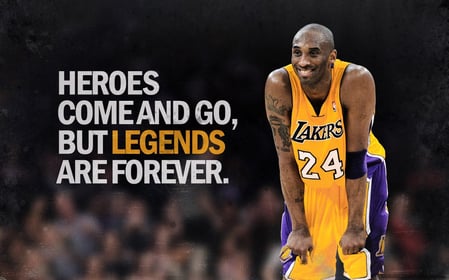In our 9th and final installment in the Sales Productivity Tools blog series, I dive into an essential item on the list: the Performance Recording tool.
In a smartphone filled world, it has never been easier to record a conversation than it is today, and the usage of audio recording can be used to improve skills in selling through roleplays, 1-on-1 coaching, and analysis.
It is a vital tool that must be utilized in your organization!

In my previous Sales Productivity Tools blog, I talked about the film room as an essential tool for improving skills on the football field. As indicated, these film and audio tools should exist for sales managers and salespeople alike.
In our world, audio recording is constantly being used to improve skills, check on compliance issues, and improve the quality of customer service. Just think about the last time you called to check on a bank statement, a credit card charge or to make a change in a flight reservation.
"This call will be on a recorded line."
When that happens, what do you do?
- Do you hang up because you don’t want the conversation to be recorded?
- Stay on the phone because you don’t care if it’s recorded?
- When you do get a real person on the phone, ask that the conversation not be recorded?
If you are like most people, you stay on the phone and don’t give it a second thought. When it comes to recording conversations in regards to the law, you should know the following information as is copied from Digital Media Law website:
"Federal law permits recording telephone calls and in-person conversations with the consent of at least one of the parties. See 18 U.S.C. 2511(2)(d). This is called a "one-party consent" law. Under a one-party consent law, you can record a phone call or conversation so long as you are a party to the conversation. Furthermore, if you are not a party to the conversation, a "one-party consent" law will allow you to record the conversation or phone call so long as your source consents and has full knowledge that the communication will be recorded."
I’m not suggesting that you start an immediate campaign to record conversations between your salespeople and every prospect or client, but I’m not discouraging you from doing that either. The bigger problem you will have isn’t with the Federal or the State government, but more likely with your internal legal and HR departments.
So, assuming for a minute that recording live conversations is off the table, let’s talk about what is on the table, and what you should be doing to improve your skills and the skills of those on your team.
- You should take time to roleplay in every sales meeting.
- On occasion (once or twice a week), make sure that someone records the roleplay, and then play the recording back for discussion.
- Use scorecards to evaluate the objective and responses during the exercise. It's helpful to ask yourself, or your people, these questions after the roleplay is complete.
- Did they get the prospect involved in the conversation as soon as possible by introducing themselves and then stop talking?
- Did they ask permission to tell the prospect why they were calling?
- Did they look, act and sound like a typical sales person?
- Would you have continued to listen?
- Would you have scheduled an appointment?
- Was there value proposition compelling enough to get you to ask questions?
- Did they start "selling on the phone" (talk too much)?
- Did they get invited out to visit or did they invite the prospect to visit?
- On a scale of 1-10, how well did they handle objections or questions?
- Record your 1-on-1 coaching sessions (especially when you demonstrate what you expect your salespeople to do on an appointment or call).
- Make audio and video recording part of any training program.
- Provide objective feedback to recordings sent to you by your sales team.
- Occasionally use video recording but silence the audio so that you can focus just on the body language of the participants.
Here is something to consider when starting the process- expect some push back and resistance. You have to be numb to that. These are salespeople that should be strong enough and confident enough to allow themselves to be recorded. If they don’t, then that tells you something about what you’ve recruited. Next, give your people planned vs. canned scripts to follow so that you can measure one performance against another.
Finally make sure you do these three things:
- Keep and archive the really good performances and use them for training new people and for conducting more effective sales meetings.
- Give your people several chances to record so that they can practice to get it right and submit the one they feel is their best effort. This leads to the improvement of skill through self-practice and evaluation.
- Create a bit of a competition – Our Company Has Talent! Kind of a round robin event where everyone starts the competition, they work within team structures, the teams nominate their best participant and those nominated compete against others. The winner gets the prize, as well the team represented.
Yes this takes work, yes this will work, and yes we can help. Here is your call to action. Call us (877-635-5371) or email our team to inquire about a 1-day workshop on any sales topic you can think of. We will consult with you on the skills and behaviors that you want improved within your organization!
Email a member of our team below:
Jeni@anthonycoletraining.com – COO & CMO
Tony@anthonycoletraining.com– Founder & Chief Learning Officer
Alex@anthonycoletraining.com – Recruitment Specialist & 1-on-1 Coaching Expert
OR, you can schedule a meeting here:





